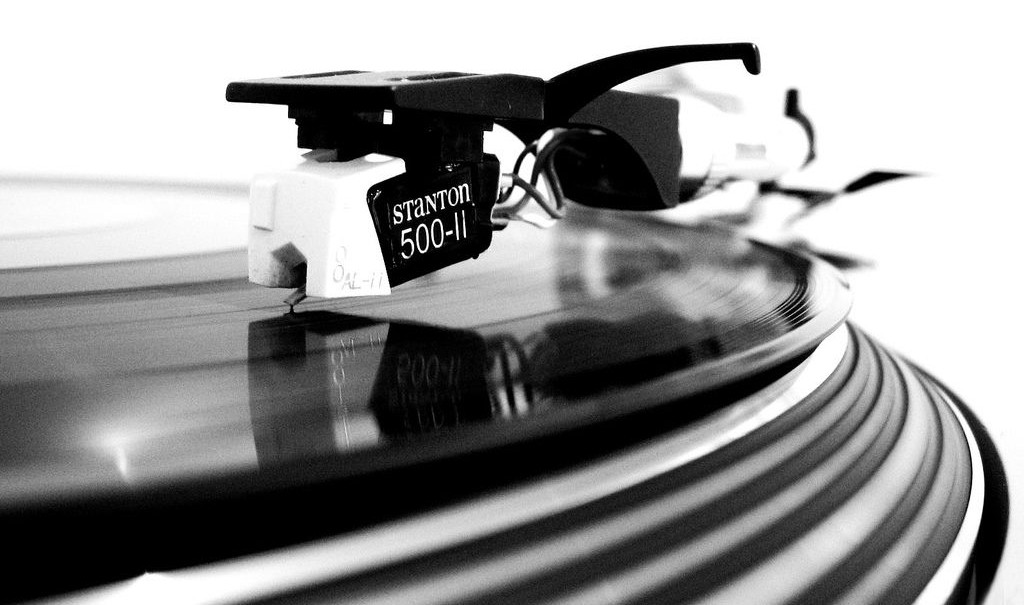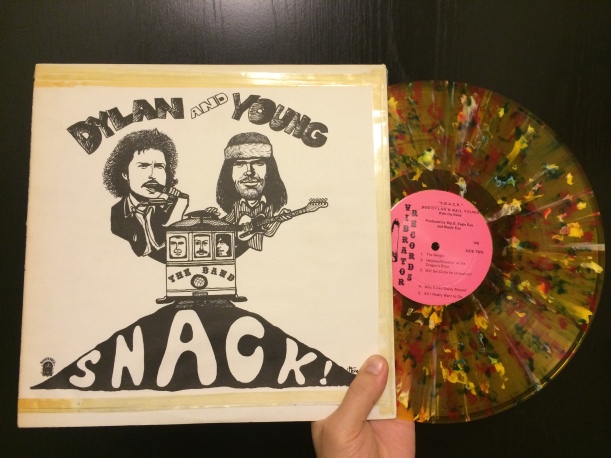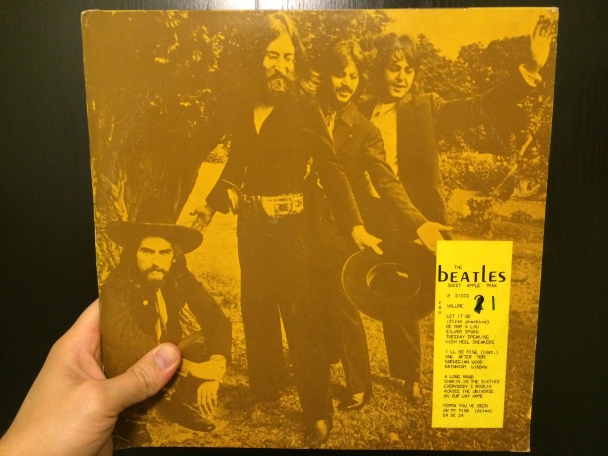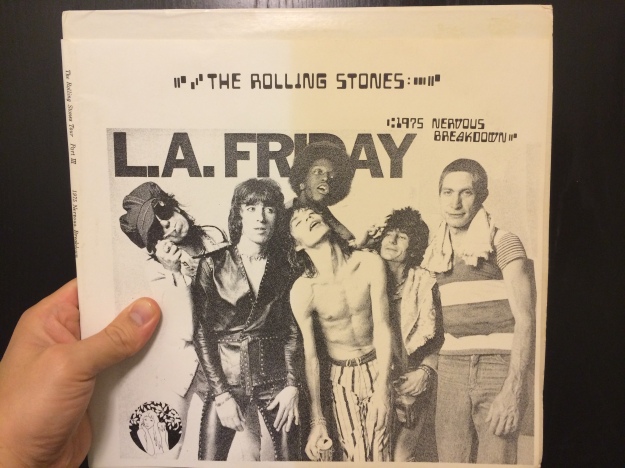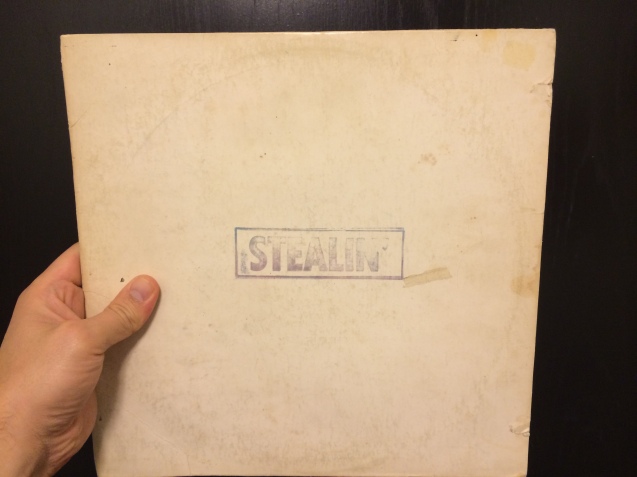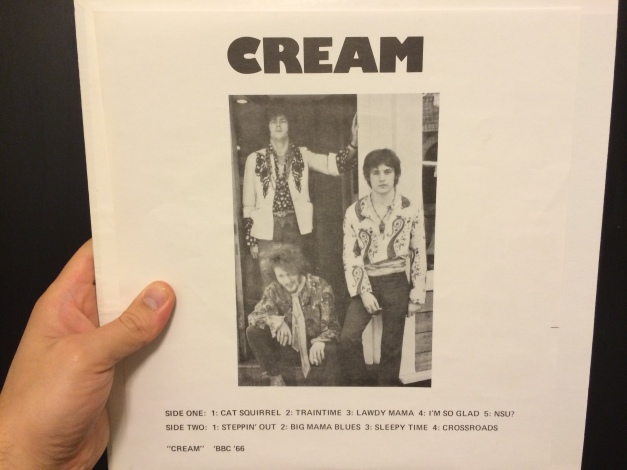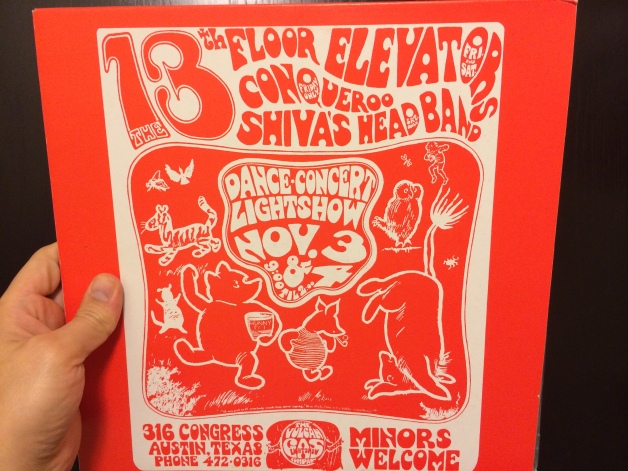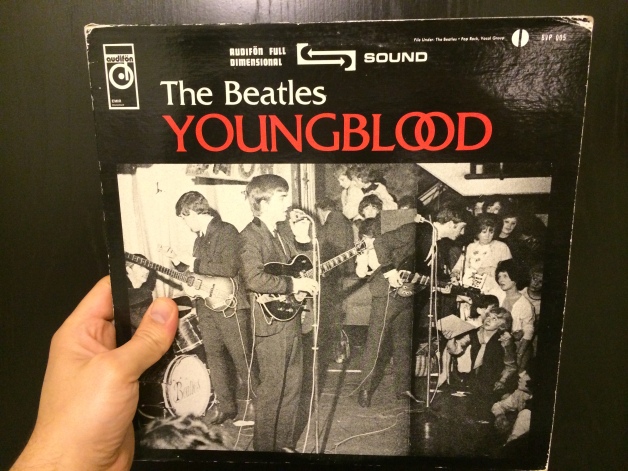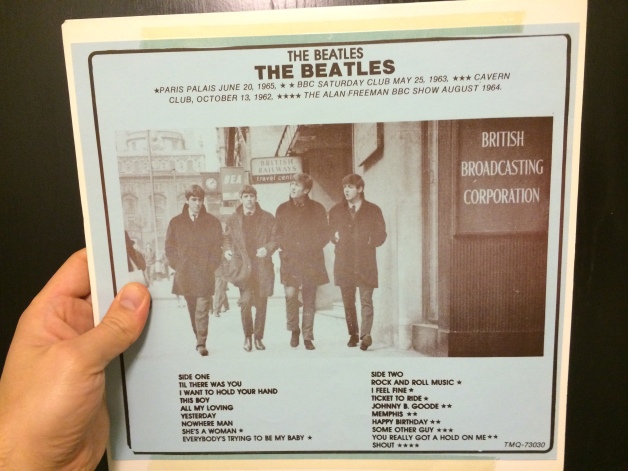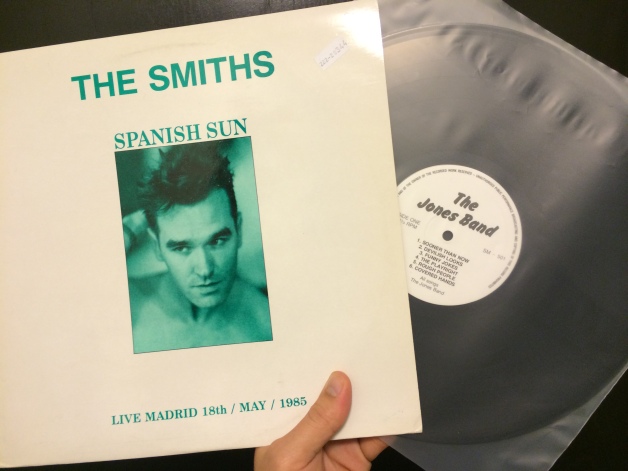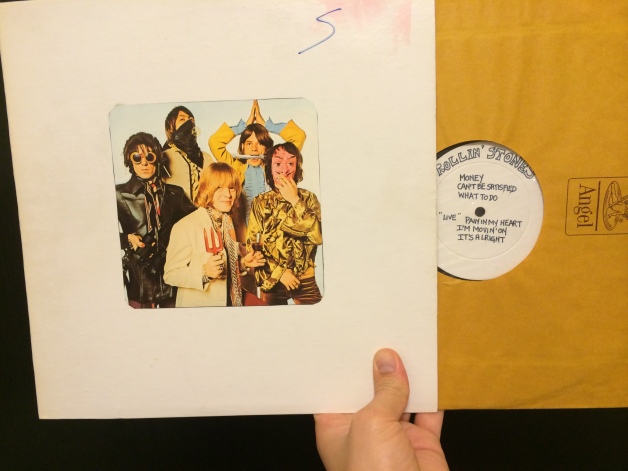I’ve long been torn on the idea of bootlegs. I mean, really you’re stealing music from the artist or label. You know those internet sites that sell mp3’s without paying royalties? Well, these are the analog version of those. Beyond that, maybe the artist didn’t want that material being released, or that show to have been taped and shared outside of those who bought a ticket. There’s also the quality factor as a good number of these are produced to “get them out there,” small production runs rather than having them engineered to sound good. A good example is the Beatles Apple Trax bootleg which is a two album set that, to be frank, is hard to listen to because it’s just a jumble of outtakes, practice jams and the like (the copy below is on the Instant Analysis label. I have no idea whether it’s one of the first released because bootleg labels will bootleg other bootleg labels. Shocking, I know).
On the positive side, bootlegs give you a chance to experience a specific show you would otherwise be unable to see or to hear the demo’s and creative process of your favourite artists. They can give you insight into the band at a specific moment in time. I like the Rolling Stones, but I have no interest in seeing the geriatric version running around on stage. I do however, like watching their shows online from the 70s, or listening to their early boots like the one below (1975, Idle Minds Productions):
Large scale bootleg became a thing in the 1950s when reel to reel machines became more widely available to anyone with opposable thumbs and a few dollars. In the longer history, there are bootleg recordings back to 1901, done on an Edison Recorder. For the modern bootleg, the ones from the early 1960s and up, the key release was a Dylan rip called The Great White Wonder (1969). I don’t have one of those, but I do have Stealin’ (1969, unknown label):
That’s what really caused things to get moving and numerous bootleg labels opened up all around the world, such as Kornyphone, Kustom and Phonygraf. In embargoed countries, like Russia, Beatles albums would be cut onto x-rays making, essentially, a flexi-disc. Anyone who’s seen Searching for Sugarman can understand the bootleg industries success in moving the Rodriguez album into South Africa. For the most part, the pressing plants weren’t asking what was being pressed or were complicit in bootlegging act.
At the end of the day, I’m torn on the issue but not so much that I don’t snap them up when I come across one I think I’ll like! What do you think?
Here’s a few more personal favourites:
For any interested parties, there’s a great article on bootlegs in the Dave Thompson book The Music Lover’s Guide To Record Collecting (Backbeat Books, 2002) and is where I found a tonne of info for this post (all credits to that dude).
